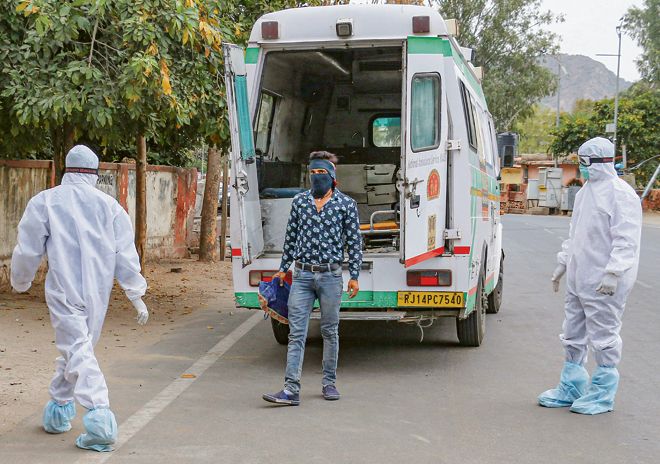
Curbs: Mass quarantine aims to restrict the movement of the healthy population so as to break the cycle of spread of the virus.
Dr R Kumar
Dr R Kumar
President, Society for Promotion of Ethical and Affordable Healthcare
Amid the coronavirus outbreak, one can’t overstate the importance of individual isolation and mass quarantine of the community. Transmission of the virus can happen before the symptoms set in. With carriers hard to detect, social distancing — staying at home, in essence — is the most effective means of holding back the spread, as well as preventing hospitals from becoming overwhelmed. India is under a 21-day lockdown. China has done it with courage and resilience; India can do it too. Some people say China’s approach has been extremely restrictive, draconian and regressive and India, with its diverse demographics, may not be able to curb individual freedom. But to save millions of people from sickness and deaths and to prevent an economic disaster, won’t it be better to put public health above politics of any kind? In desperate times, desperate measures become necessary.
On March 22, people largely observed Janata Curfew as a civic duty, while trading their freedom for greater public good through mass quarantine. Normally, quarantine is a restriction on the movement of the people who have been exposed to a communicable disease. Mass quarantine, on the other hand, is the term used in connection with restricting the movement of the entire healthy population so as to break the cycle of spread of the virus in the community.
Covid-19 has spread rapidly on a global scale, but the panic it has caused has spread even faster. The virus’ incubation period is between one and 14 days, but it’s most commonly believed to be around five days. It can cause symptoms ranging from common cold, fever, cough, shortness of breath, and difficult breathing to more serious illnesses such as pneumonia, kidney failure, and even death. Some persons may be carriers, but may not show symptoms. Older adults and people with chronic medical conditions such as heart disease, diabetes, and lung disease are at higher risk of complications from Covid. The WHO estimates the mortality rate for corona at around 3.4 per cent globally.
The World Health Organisation (WHO) declared on February 28 that “our greatest enemy right now is not the virus itself, it’s fear, rumours and stigma. And our greatest assets are facts, reason, and solidarity.” Prime Minister Narendra Modi recently advised to combat it with resolve and restraint and start with voluntary home quarantine for one day. The pandemic is going to test us in many ways. How much empathy do we have towards the marginalised? Do we truly care about our neighbours? It will test how we treat the elderly, the healthcare workers, the domestic workers, the daily-wage earners, the homeless.
The Union Health Ministry has limited facility of testing the swabs from infected or suspected patients. Even meeting the demands of international travellers as well those who might have come in their contact or with other infected people is a challenge for labs of government hospitals. This testing facility is available at government-accredited centres and a few private lab chains. As of now, with over 700 positive cases, India’s healthcare system has already shown its fragility. However, this relatively low number may be because of low, inadequate testing and should not give rise to any complacency in prevention. What if the number of undetected cases is actually higher, but not reported for testing? There is a need to urgently scale up aggressive measures to detect and combat Covid-19 on a war footing, touching the whole community. Home quarantine of the entire population may lead to victory. Else, it can lead to widespread disease, deaths and economic ruin. The longer the pandemic lasts, the greater the risk that the sharp downturn morphs into a financial crisis with some companies triggering a chain of defaults, The daily-wagers, professionals, businesses and factories as well as the services sector, are set to be hit hard.
Surgical masks are for people with disease symptoms like cough, cold, fever and difficulty in breathing and for people suspected of carrying the virus. Healthy people without symptoms should not wear a face mask. Don’t go for a test unless it is a medical necessity, since there’s a shortage of testing facility for Covid-19 in the country. As coronavirus sweeps across the globe, shutting down countries and sealing borders, scientists from Oxford University have developed a rapid testing technology, which is capable of giving results in just half an hour — over three times faster than the current method. It uses a simple colour change to identify the presence of the virus. A positive sample changes from pink to yellow. This may be available in due course.
Join Whatsapp Channel of The Tribune for latest updates.




























